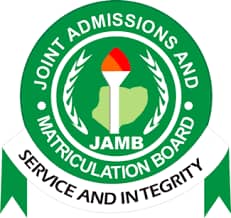JAMB Flags 2,658 Illegal Admissions Across Tertiary Institutions
By Deborah Tolu-Kolawole
Abuja | November 1, 2025
The Joint Admissions and Matriculation Board (JAMB) has uncovered a total of 2,658 illegal admissions conducted by various tertiary institutions during the 2024/2025 academic session, raising fresh concerns about compliance with federal admission procedures.
A detailed institutional analysis obtained by The PUNCH in Abuja on Friday revealed that the affected cases cut across 17 universities, polytechnics, and colleges of education nationwide.
The flagged admissions, according to JAMB, were offered outside the Central Admissions Processing System (CAPS) — the sole legitimate platform for conducting and validating entry into Nigerian tertiary institutions.
Under JAMB regulations, all admissions must be processed and approved through CAPS to ensure transparency, equity, and adherence to national admission policies, including the federal character and quota system.
However, the latest audit shows that several institutions continue to bypass the system, admitting candidates directly in contravention of laid-down procedures.
According to the analysis, Abubakar Tafawa Balewa University (ATBU), Bauchi, topped the list with 1,847 illegal admissions, followed by Osun State University, which recorded 492, and Abubakar Tafari Ali Polytechnic, which accounted for 148 cases.
Other institutions named include:
- Federal College of Animal Health and Production Technology – 66
- University of Calabar – 28
- College of Education, Oro – 12
- Michael and Cecilia Ibru University – 12
- Redeemer’s University – 5
- Pan-Atlantic University – 5
- Nigerian Army College of Education – 2
- Kwara State Polytechnic – 1
- Best Solution Polytechnic – 1
Although JAMB did not immediately list specific penalties, the Board reaffirmed that such admissions are “null and void” and that affected students will not be recognized for matriculation or national data purposes.
A senior JAMB official who spoke on condition of anonymity said the Board remains committed to enforcing compliance among institutions.
“CAPS was introduced to curb backdoor admissions and ensure fairness in the system. Any institution still admitting outside the platform is violating federal policy and putting students at risk,” the official explained.
Education policy analysts say the discovery underscores the persistence of institutional autonomy abuses within Nigeria’s higher education system.
While universities and colleges are granted some discretion in admitting students, the process must still pass through JAMB’s central clearinghouse to maintain national standards.
The development also coincides with the official conclusion of the 2025/2026 admission exercise across public universities on Friday, a deadline JAMB said it would strictly enforce.
Over the years, the Board has repeatedly warned institutions against admitting students through unapproved channels. In 2023, for instance, JAMB had invalidated hundreds of such admissions and ordered the affected schools to reabsorb candidates through proper procedures — a move that sparked temporary tension between the Board and some vice-chancellors.
JAMB has emphasized that the CAPS framework remains a cornerstone of Nigeria’s admission reform, ensuring merit-based selections while preventing multiple admissions, forgery, and irregularities.
Students admitted outside the system, the Board insists, will not have their names listed on the Matriculation List, which validates their admission status nationwide.
Education stakeholders have urged JAMB to go beyond naming and shaming by applying sanctions, including withdrawal of admission quotas or suspension of erring institutions from subsequent admission cycles.
As Nigeria continues to expand access to higher education, the controversy over illegal admissions once again highlights the tension between institutional autonomy and federal oversight — a debate that JAMB seems determined to settle through strict enforcement of its centralised system.



































